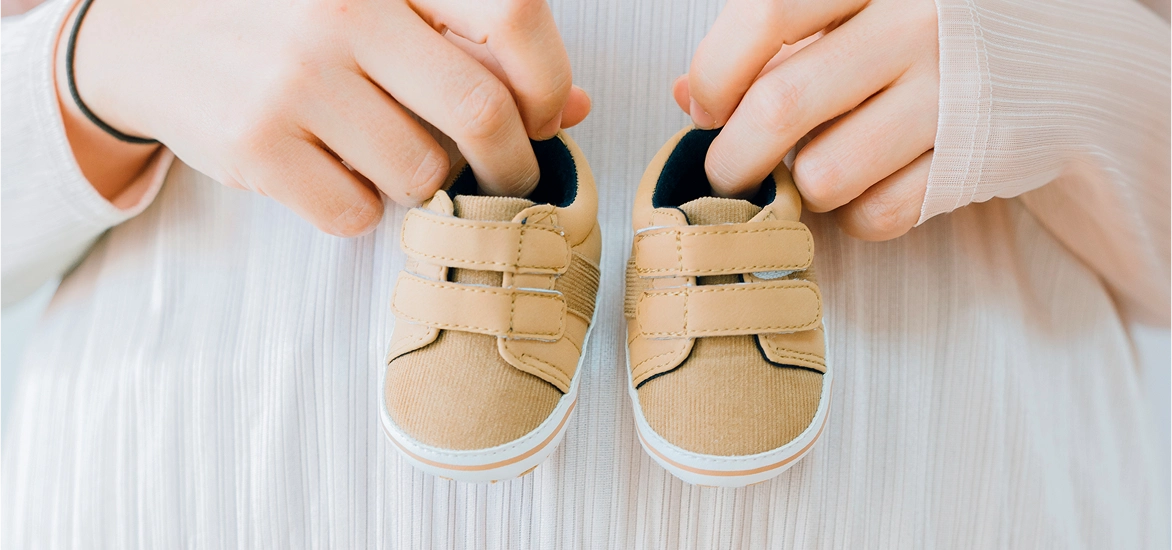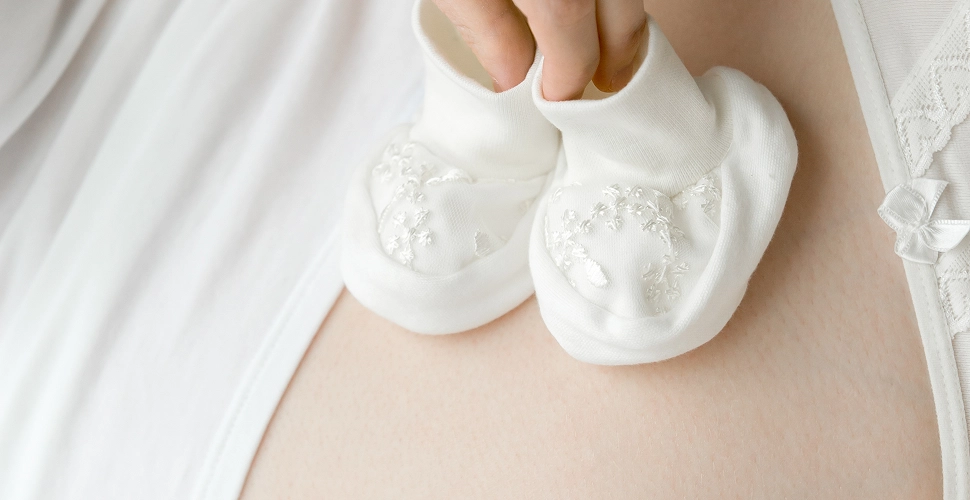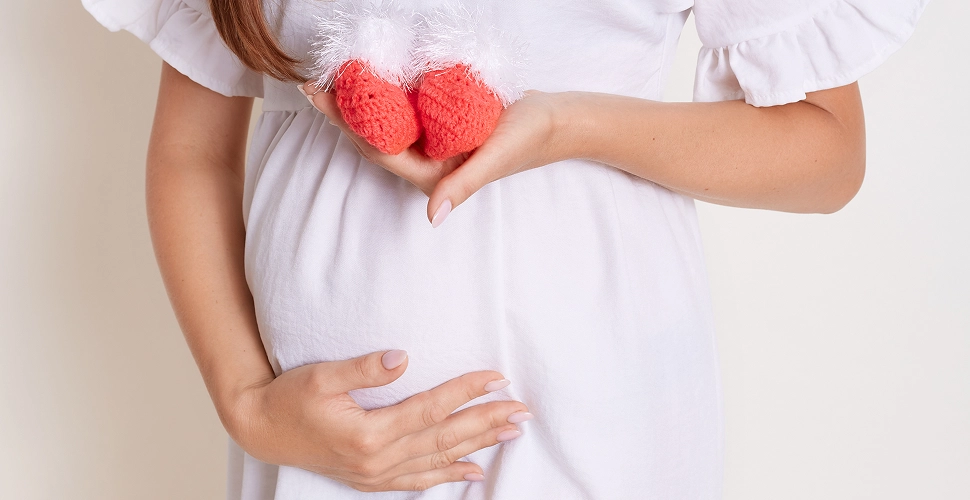
One of the lesser-known but critical aspects of PCOS is its connection to insulin resistance. Insulin is a hormone that helps regulate blood sugar levels, and when the body becomes resistant to its effects, it compensates by producing more insulin. This excess insulin can disrupt the hormonal balance in women with PCOS, leading to increased androgen production, irregular ovulation, and ultimately, infertility. The complex interplay between insulin resistance and reproductive hormones is a key reason why many women with PCOS struggle to conceive.
In recent years, holistic medicine has gained traction as a supportive approach to managing PCOS and its related symptoms. Unlike conventional treatments that often rely on medications to regulate hormones or stimulate ovulation, holistic medicine focuses on addressing the root causes of imbalance in the body. At Road to Fertility, Dr. Yuabova Marina, DNP, APRN, Holistic Specialist, leads a personalized program that restores natural fertility through functional and integrative care. By combining dietary changes, herbal remedies, stress reduction, and targeted lifestyle interventions, Road to Fertility helps individuals improve hormonal health and create a clearer path to conception. This patient-centered approach appeals to those seeking natural, sustainable solutions for managing PCOS and supporting their reproductive health.
Understanding PCOS
- Irregular or absent menstrual periods
- Excess androgen levels, which can lead to acne or male-pattern hair growth (hirsutism)
- Ovarian cysts seen on ultrasound
- Weight gain or difficulty losing weight
- Thinning hair or hair loss on the scalp
- Darkened skin patches, typically around the neck or underarms
The exact cause of PCOS is not fully understood, but it is believed to be the result of a combination of factors. These include:
- Hormonal imbalance, particularly involving insulin and androgens
- Genetics, as PCOS often runs in families
- Inflammation, which can trigger increased androgen production
- Lifestyle influences, such as poor diet, inactivity, and stress, which can exacerbate symptoms
PCOS can significantly impact emotional health, causing body image issues, anxiety, and depression. The unpredictability of symptoms—especially irregular periods and fertility challenges—often leads to frustration. At Road to Fertility, Dr. Yuabova Marina, DNP, APRN, Holistic Specialist, and her team offer personalized, holistic care addressing both medical and emotional aspects of PCOS. Their approach supports the restoration of natural fertility while also emphasizing the importance of recognizing long-term risks like type 2 diabetes, heart disease, and endometrial cancer for comprehensive, proactive management.

The Role of Insulin Resistance in PCOS
In women with PCOS, insulin resistance plays a central role in worsening symptoms. Elevated insulin levels stimulate the ovaries to produce more androgens—male hormones like testosterone—which are already present in higher-than-normal levels in women with PCOS. This hormonal imbalance contributes to many of the hallmark symptoms of PCOS, such as:
- Irregular or absent ovulation, leading to missed or infrequent periods
- Excess facial and body hair growth (hirsutism)
- Acne and oily skin
- Weight gain, particularly around the abdomen
The link between high insulin levels and elevated androgens creates a vicious cycle. As insulin resistance worsens, androgen levels rise, which further disrupts ovulation and menstrual regularity. This hormonal disruption makes it difficult for women with PCOS to conceive naturally and contributes to the development of ovarian cysts. Many healthcare providers now view PCOS not just as a reproductive disorder, but also as a metabolic condition.
Because insulin resistance is so closely tied to the hormonal imbalances in PCOS, addressing it is a key part of managing symptoms and improving fertility. This is where lifestyle changes, such as improved nutrition and regular physical activity, become especially important—and where holistic medicine offers promising tools for long-term support.

PCOS and Infertility
The disruption of ovulation also impacts egg quality and menstrual regularity. Without regular ovulation, the body does not produce the cyclical hormonal shifts needed to support egg maturation. This can lead to:
- Irregular or missed menstrual cycles
- Poor egg development or immature eggs
- Thickened ovarian lining or multiple immature follicles
- Greater difficulty timing intercourse for conception
The emotional toll of infertility is often worsened by the psychological effects of PCOS, including frustration, inadequacy, and isolation. Many women feel overwhelmed by the demands of tracking ovulation, managing treatment schedules, and coping with medication side effects. At Road to Fertility, Dr. Yuabova Marina, DNP, APRN, Holistic Specialist, and her team prioritize addressing these emotional challenges through a holistic approach that treats the mind, body, and spirit, providing compassionate, personalized support throughout the natural fertility journey.

Conventional vs. Holistic Approaches
- Birth control pills, which help regulate periods and reduce androgen-related symptoms like acne and excess hair growth.
- Metformin, a medication typically used to treat type 2 diabetes, improves insulin sensitivity and can help restore ovulation in some women.
- Fertility drugs, such as Clomid (clomiphene citrate) or letrozole, stimulate ovulation in women trying to conceive.
While these treatments can be effective in managing symptoms or promoting ovulation, they come with notable limitations. Birth control pills do not address the root cause of PCOS and only provide symptom relief while they are being used. Metformin can cause gastrointestinal side effects like nausea, bloating, and diarrhea, and it’s not always effective for all patients. Fertility medications can cause mood swings, ovarian hyperstimulation, and emotional stress, especially when used over long periods. In many cases, women may cycle through multiple medications without experiencing lasting relief or success with conception.
Because of these limitations, many individuals are exploring holistic medicine as a complementary or alternative approach. At Road to Fertility, Dr. Yuabova Marina, DNP, APRN, Holistic Specialist, leads a program that goes beyond symptom management to identify and address the underlying imbalances contributing to PCOS. This holistic and functional approach considers the whole person—mind, body, and lifestyle—emphasizing long-term wellness rather than quick fixes. Holistic practitioners at Road to Fertility often use a combination of:
- Personalized nutrition and dietary changes
- Herbal and nutritional supplements
- Stress management techniques like meditation, yoga, and acupuncture
- Exercise programs tailored to hormone balance and insulin sensitivity
By supporting the body’s natural healing processes and focusing on sustainable lifestyle changes, holistic approaches aim to improve not only reproductive health but also overall well-being. At Road to Fertility, Dr. Yuabova Marina, DNP, APRN, Holistic Specialist, and her team embrace this integrative model, offering personalized care that empowers women with PCOS on their journey toward hormonal balance and restored fertility.
Holistic Medicine for PCOS, Insulin Resistance, and Infertility
Nutrition and Diet
Diet plays a foundational role in managing PCOS and insulin resistance. A well-balanced, anti-inflammatory, and low-glycemic eating plan can help regulate blood sugar, reduce inflammation, and support hormonal balance.
Key dietary strategies include:
- Anti-inflammatory foods, such as leafy greens, berries, fatty fish, and turmeric
- Low-glycemic carbohydrates, like sweet potatoes, quinoa, lentils, and whole grains, to prevent blood sugar spikes
- Whole, unprocessed foods that are rich in nutrients and free from added sugars and refined carbs
- High-fiber foods, such as vegetables, legumes, and chia seeds, to improve insulin sensitivity
- Healthy fats, including avocados, nuts, seeds, and olive oil, to support hormone production
Maintaining steady blood sugar levels is essential for minimizing insulin resistance. Regular meals with balanced macronutrients (protein, fats, and complex carbs) can help reduce sugar cravings and energy crashes—two common issues for women with PCOS.
Herbal Medicine and Supplements
Certain herbs and supplements have shown promise in improving PCOS symptoms, balancing hormones, and enhancing fertility naturally. These natural remedies may reduce reliance on pharmaceuticals and offer fewer side effects.
Popular options include:
- Inositol (myo- and D-chiro-inositol): Helps improve insulin sensitivity and support ovulation
- Cinnamon: May help lower blood sugar levels and improve menstrual regularity
- Spearmint tea: Known to reduce excess androgens and support hormone balance
- Berberine: A plant compound that improves insulin sensitivity and may aid in weight loss
Essential nutrients for hormone and metabolic support:
- Magnesium: Helps regulate blood sugar and reduces inflammation
- Vitamin D: Important for insulin function and ovarian health
- Omega-3 fatty acids: Reduce inflammation and support hormone production
Consulting with a holistic or functional medicine practitioner is important to determine the right combinations and dosages for your unique needs.

Acupuncture and Traditional Chinese Medicine
Acupuncture, a key component of Traditional Chinese Medicine (TCM), has gained popularity as a natural way to manage PCOS and infertility. It involves inserting fine needles into specific points on the body to stimulate energy flow and balance the body’s systems.
Benefits of acupuncture for PCOS include:
- Regulation of menstrual cycles and improvement in ovulation
- Reduction in androgen levels, which can improve symptoms like acne and hirsutism
- Enhanced blood flow to the ovaries and uterus, which may support egg quality and implantation
- Stress relief, which is critical in balancing reproductive hormones
Regular acupuncture sessions can help reset hormonal rhythms, especially when combined with other holistic practices.
Stress Management and Lifestyle Practices
Chronic stress has a direct impact on hormonal health, particularly the adrenal and reproductive systems. Elevated cortisol levels from prolonged stress can exacerbate insulin resistance and contribute to irregular ovulation.
Holistic stress reduction techniques include:
- Yoga, especially gentle or restorative styles that support hormonal balance
- Meditation and mindfulness practices, which reduce cortisol and enhance emotional resilience
- Breathwork and deep breathing exercises, which activate the parasympathetic nervous system and promote relaxation
Incorporating these practices into daily life can support both emotional and physical health, helping to regulate hormones naturally.
Exercise and Movement
Regular physical activity is one of the most effective ways to improve insulin sensitivity and support hormone balance in women with PCOS. However, intense or excessive workouts may do more harm than good, especially if stress levels are already high.
Recommended exercises for PCOS include:
- Moderate-intensity cardio, such as brisk walking, swimming, or cycling
- Strength training, which builds muscle and improves insulin sensitivity
- Low-impact movement, like Pilates or yoga, which supports flexibility and stress reduction
Consistency is more important than intensity. A balanced exercise routine, performed 3–5 times per week, can enhance metabolic health, regulate menstrual cycles, and improve fertility outcomes.
By combining these holistic strategies, women with PCOS can take a proactive, natural approach to restoring balance, improving fertility, and supporting their overall health—without relying solely on medications or invasive treatments.
Integrating Holistic Care with Conventional Treatments
A complementary approach can enhance results in several ways:
- Improved insulin sensitivity through diet, supplements, and exercise can increase the effectiveness of medications like metformin or fertility drugs.
- Stress reduction techniques (e.g., yoga, acupuncture) may help normalize cortisol and reproductive hormones, supporting ovulation in women undergoing fertility treatment.
- Anti-inflammatory, nutrient-dense diets can enhance hormonal regulation and reduce medication side effects.
- Holistic lifestyle support helps build a foundation for long-term health and sustainable weight management, even after fertility treatments conclude.
Partnering with a qualified integrative or functional medicine practitioner is essential for success. These professionals can bridge the gap between natural and conventional care, offering guidance that respects both scientific evidence and individualized needs. They may collaborate with OB-GYNs, endocrinologists, or fertility specialists to coordinate care and adjust treatment plans as a woman’s health evolves.
For example, a woman undergoing IVF may use acupuncture to improve uterine blood flow and reduce stress during the stimulation phase. Another might find that addressing gut health and inflammation through holistic nutrition helped her respond better to Clomid, ultimately leading to a successful pregnancy. While each journey is unique, these blended approaches often empower women to take an active role in their health while still benefiting from medical interventions when needed.
Ultimately, integrating holistic and conventional therapies doesn’t mean choosing one over the other—it means choosing the best of both to support healing, balance, and fertility.

When to Seek Professional Help
Signs it’s time to seek professional help include:
- Irregular, absent, or painful periods
- Difficulty conceiving after six months to a year of trying
- Excessive facial or body hair, severe acne, or hair thinning
- Rapid or unexplained weight gain, especially around the abdomen
- Signs of insulin resistance, such as constant fatigue, sugar cravings, or dark patches of skin (acanthosis nigricans)
- Emotional distress, including anxiety or depression related to your symptoms or fertility struggles
When you pursue a holistic evaluation for PCOS, the process often goes beyond standard lab work and symptom checklists. Holistic and functional medicine practitioners take a comprehensive view of your health, assessing not just your reproductive system, but also your metabolism, digestion, stress levels, sleep quality, and lifestyle habits. A typical holistic evaluation may include:
- In-depth health history and discussion of your cycle, symptoms, and goals
- Advanced lab testing to assess hormone levels, insulin sensitivity, nutrient deficiencies, and inflammation markers
- Dietary and lifestyle assessment, including your typical meals, stress management practices, and exercise routine
- Customized wellness plan, incorporating nutrition, supplements, stress reduction tools, and natural therapies like acupuncture or herbal medicine
Working with a practitioner who understands both conventional and holistic care can help you make sense of your options and build a realistic, supportive plan for long-term healing. Whether you’re managing irregular periods, addressing insulin resistance, or navigating the emotional challenges of infertility, professional guidance can provide clarity and confidence along the way.
PCOS, insulin resistance, and infertility are closely linked through hormonal and metabolic imbalances that disrupt ovulation and egg quality. While conventional treatments can help manage symptoms, Road to Fertility offers a holistic, individualized approach that includes nutrition, stress management, and natural therapies to address the root causes for more lasting results. This whole-body focus empowers women to regain balance, improve natural fertility, and enhance overall well-being. With the right support from Road to Fertility, healing is possible—offering hope and renewed confidence on the journey to better health.
Holistic Fertility Treatment with Road to Fertility
You don’t have to navigate PCOS and insulin resistance on your own. We’re here to help you create a personalized plan that supports your body’s unique needs, nurtures your emotional well-being, and guides you through your fertility journey with a blend of compassionate care and evidence-based holistic practices.